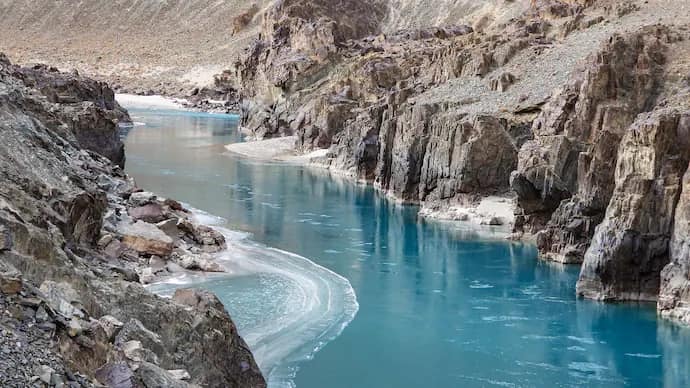In a significant move following the terror attack in Jammu and Kashmir’s Pahalgam that killed 26 civilians, most of them tourists, the central government on Wednesday downgraded diplomatic ties with Pakistan and suspended the over six-decade-old Indus Waters Treaty.
The Cabinet Committee on Security (CCS), chaired by Prime Minister Narendra Modi, convened on Wednesday evening to finalise country’s response to the “dastardly strike,” which, according to intelligence briefings, had cross-border linkages.
Foreign Secretary Vikram Misri, announcing the decisions at a media briefing, said Pakistan’s defence, military, naval and air attaches posted in New Delhi have been declared persona non grata and given a week to leave. India will also withdraw its own defence advisors from the High Commission in Islamabad. These posts, along with five support staff from each side, stand annulled with immediate effect.
India and Pakistan will also reduce the strength of their high commissions from 55 to 30 officials by May 1.
Attari land transit closed, SAARC visa scheme cancelled for Pakistanis
Among other measures, India has ordered the immediate closure of the Attari Integrated Check Post — the only operational land crossing between the two countries. Pakistani nationals will no longer be permitted to enter India under the SAARC Visa Exemption Scheme, and any visas issued under the scheme to Pakistani citizens have been cancelled.
Indus Waters Treaty held in abeyance — a historic first
In perhaps the most consequential decision, Misri announced that the Indus Waters Treaty of 1960 will be suspended until Pakistan “credibly and irrevocably” ceases its support for cross-border terrorism. This marks the first time the treaty has been held in abeyance since its inception, despite the two nations fighting four wars and enduring decades of hostility.
Brokered by the World Bank, the Indus Waters Treaty (IWT) was signed in 1960 to divide the waters of the Indus basin between India and Pakistan. Under the treaty, India received full rights over the Eastern rivers — Ravi, Beas and Sutlej — while Pakistan got the lion’s share of the Western rivers — Indus, Jhelum and Chenab. India, as the upper riparian state, was permitted limited use of Western rivers for non-consumptive needs, agriculture and hydropower generation.
The suspension of the treaty gives India a freer hand over the usage and management of Western river waters. Former Indus Water Commissioner Pradeep Kumar Saxena said this could be a prelude to treaty abrogation, despite the absence of an explicit exit clause. However, Article 62 of the Vienna Convention on the Law of Treaties allows for termination if there is a “fundamental change of circumstances.”
Saxena said India will now not be bound by past restrictions, including rules around dam design, flood data sharing, and reservoir operations. Projects previously objected to by Pakistan — like Kishanganga, Pakal Dul, and Ratle — may proceed without further consultations.
The move could hit Pakistan’s agricultural sector hard, especially in Punjab province which heavily depends on Indus waters for irrigation. India may also opt to stop the annual tours of Indus Commissioners — a key confidence-building mechanism under the treaty.
(With inputs from PTI)
Anurag Dhole is a seasoned journalist and content writer with a passion for delivering timely, accurate, and engaging stories. With over 8 years of experience in digital media, she covers a wide range of topics—from breaking news and politics to business insights and cultural trends. Jane's writing style blends clarity with depth, aiming to inform and inspire readers in a fast-paced media landscape. When she’s not chasing stories, she’s likely reading investigative features or exploring local cafés for her next writing spot.






